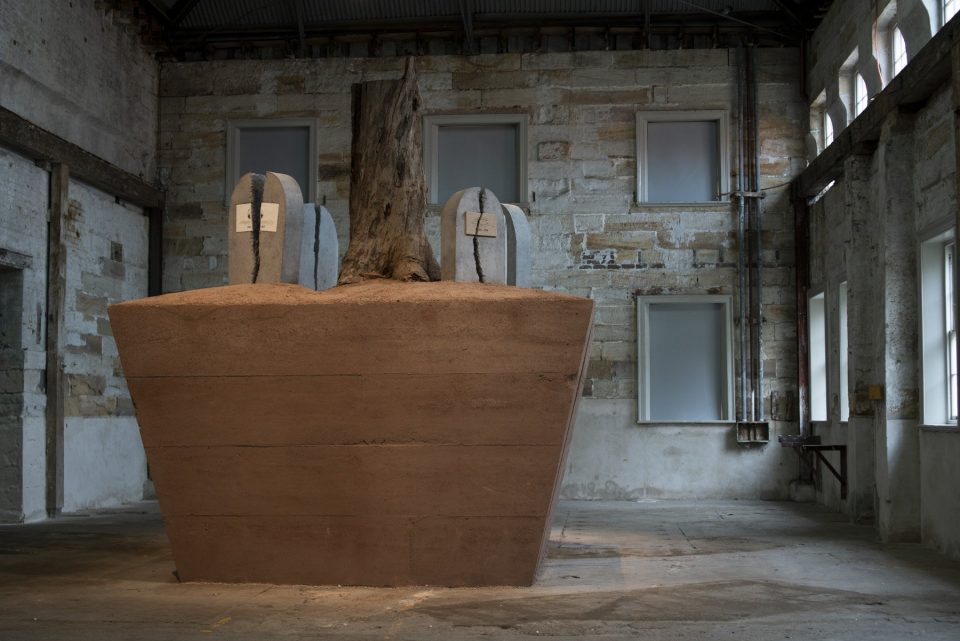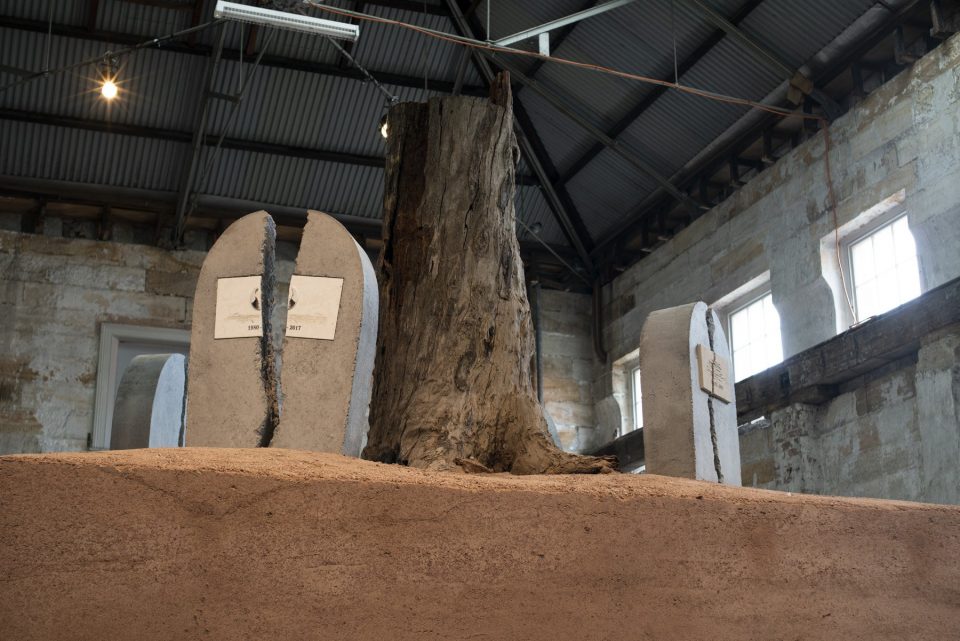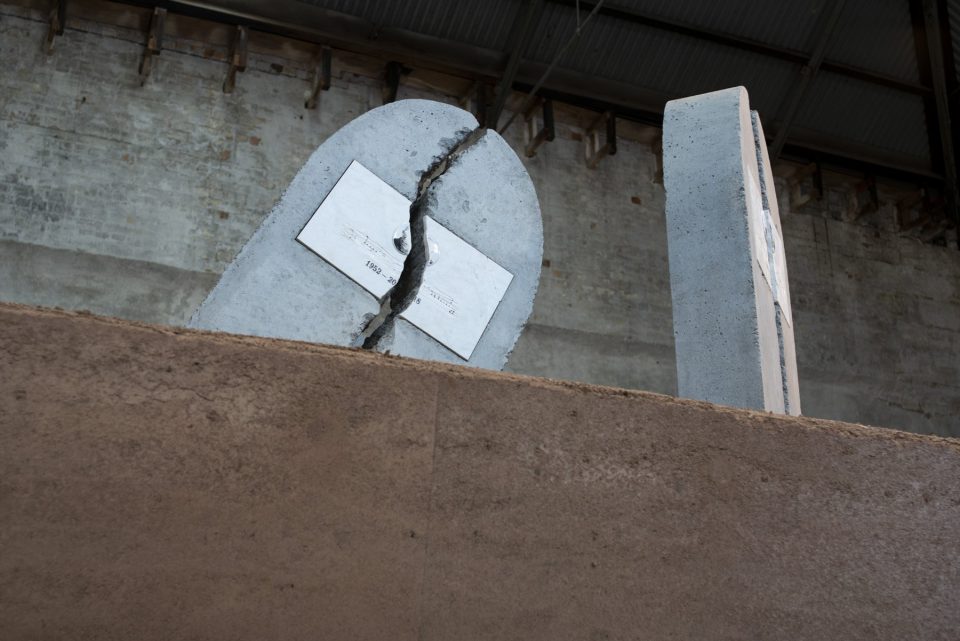Born 1985 in Tbilisi, Georgia Lives and works between Berlin, Germany and Tbilisi, Georgia
“What I am trying to communicate through sculpture, installation and film are questions about the way human psyches work, how they are affected by history and by an experience of life. I’m interested in the way history defines psychic tendencies, and the intersection of inner and outer narratives. The world I’m reconstructing in my practice exists in the conflict between one’s inner and outer world, in the conflict between past and present.”
Vajiko Chachkhiani’s Army without the general consists of an enormous tree stump, embedded within a pile of excavated earth including rocks, soil and branches, around which are situated numerous tombstones baring portraits of the unknown deceased. We are dwarfed by this unknown or lost landscape as if it has been removed or stolen from a far-away place and dumped for our contemplation and confusion. Chachkhiani’s work presents us with a melancholic situation, asking us to consider the larger historic and social forces at play at the core of our identities and sense of selves. Vajiko Chachkhiani operates somewhere between the outside world and the human psyche, bringing the shadowy aspects of our conditio humana (human condition) to awareness through a subtle and intriguing visual poetry. Frequently based on performances or transformative actions, many of his sculptures have an affinity to minimalism. At the same time, they are charged with narrative meaning. Through sculptures and installations, he seeks to address psychological conditions such as loneliness, violence and angst, weaving them with topics from religion, politics, literature, and poetry. Reoccurring themes in Chachkhiani’s work are conflict, culture/nature and the oscillation between the outer reality and the inner life of the individual being. Commissioned by the Biennale of Sydney with generous assistance from Institut für Auslandsbeziehungen. Supported by the Bundanon Trust who supplied the tree for this installation. Courtesy the artist; Daniel Marzona, Berlin; and SCAI The Bathhouse, Tokyo.


